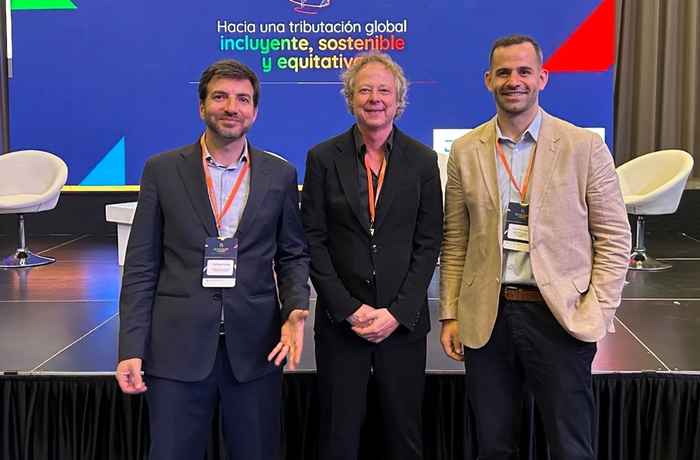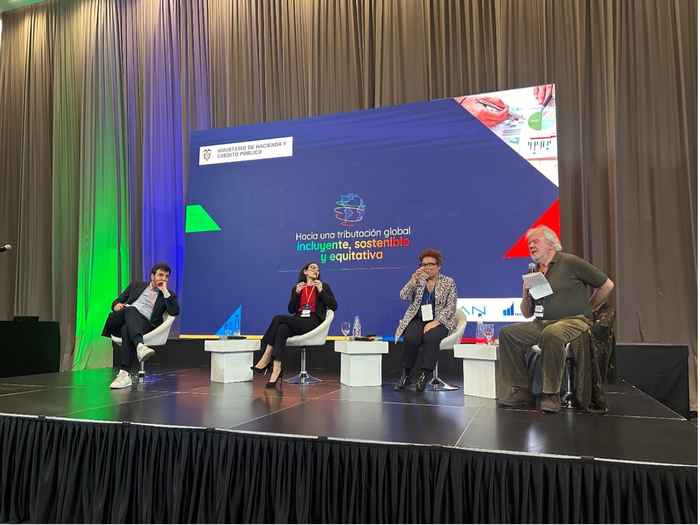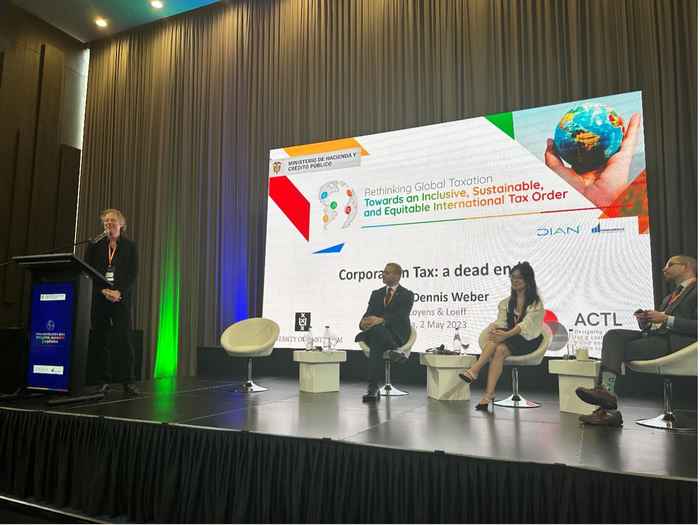UvA Researchers provide views on the design of a fairer international tax system that takes the needs of developing countries into account
17 May 2023

On 2 and 3 May 2023, 3 members of the Amsterdam Centre for Tax Law (ACTL) of the University of Amsterdam (UvA) attended the Academic Conference “Rethinking Global Taxation” organized by the Ministry of Finance of Colombia in Bogota. The event brought together tax experts, representatives from governments, businesses, and members of civil society (NGOs) to present and discuss the issues that need to be addressed to achieve a better and fairer international tax order.
During the meeting, Prof. Dr. Dennis Weber (Director of the ACTL’s CPT Project) delivered a presentation about “Corporate Taxation”. In turn, Raffaele Russo (Chair of the CPT project’s Advisory Board) spoke about the “Taxation of the Digital Economy” (see video below) and Juan Manuel Vazquez (CPT project’s Academic Coordinator and PhD Researcher) presented his views about “Tax Transparency, avoidance and evasion”. The topics addressed in these presentations fall under the umbrella of the ACTL’s project “Designing the tax system for a Cashless, Platform-based and Technology-driven society” (CPT project).
The speakers were selected among numerous applicants from all over the world. The input given during this event will be considered and prioritized by all Latin American Finance Ministers during the Summit to be held in Cartagena on July 27-28th 2023 and put into a new agenda for an inclusive, fair, and sustainable global tax system. This prioritization will become a declaration signed by Latam and possibly adhered to by the African, G24 and G77 countries, who will be invited as observers to the summit. This declaration will be sent to the UN Secretary General, whose team is aware of the Latam contribution for inclusion in the report to be delivered in October, 2023.
About the CPT project
Whenever major economic or social changes occur, tax systems must follow suit. Working from the assumption that society is in the process of transitioning to a new economic model, accelerated by the corona crisis, the CPT project examines how tax systems can be designed and structured for a society based primarily on cashless payment methods, online platforms and digital technologies, such as artificial intelligence and blockchain. The ultimate goal is to arrive at concrete recommendations that not only help different stakeholders – such as governments and commercial organisations – address problems under current tax systems and/or introduce structural tax reforms, but also provide guidelines and/or minimum standards for the redesign of modern tax systems.
Contact
- Prof. dr. Dennis Weber, Director of the ACTL and CPT project’s General Supervisor, e-mail: d.m.weber@uva.nl
- Juan Manuel Vázquez, Academic Coordinator of the CPT project; j.m.vazquez@uva.nl

